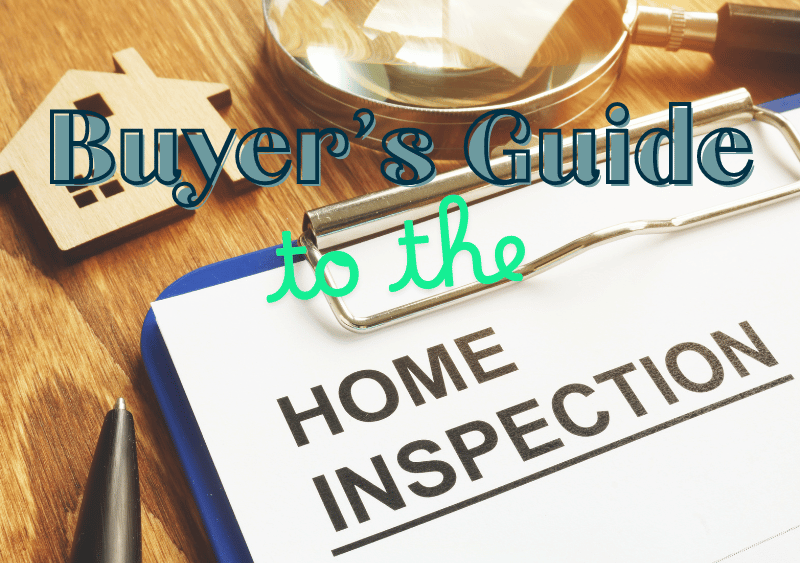— By Ian Johnston (Broker/Owner of NoCo Flex Real Estate)
The home inspection is a crucial part of the ‘due diligence’ process for homebuyers. It helps ensure that the property you are about to purchase does not have any significant issues that could cost you money or affect your family’s health and safety. As a broker, the inspection represents a valuable opportunity to negotiate necessary repairs or concessions from the seller and promote the interests of our buyer clients.
Here’s an overview at how the home inspection process typically works and how negotiations may unfold during a home purchase transaction in Colorado. Note that this process will vary by state and also with different types of contracts. Always consult your broker for advice tailored to your specific situation.
The Appointment
A typical home inspection appointment lasts 2 to 4 hours, depending on the property’s size and any additional tests requested, such as sewer scopes, radon tests, or lead-based paint tests.
Many buyers will choose to attend the inspection. If you would like to attend, it is important to both notify your broker you will be there and to coordinate with the inspector on what time to arrive as well. It is often a good idea to arrive towards the end of the appointment (in the last 30 minutes or so) to review important findings in person with the inspector. Again, if you do plan to attend, please notify us and your inspector in advance so we can inform the listing broker and seller.
Buyer’s brokers don’t usually attend inspections as a default, but may do so if necessary. Let us know if you’d like us to be present in person at any point. Don’t forget that a good home inspector will produce a comprehensive report listing and categorizing each item and providing details and photos etc so if you cannot make it to the inspection in person it is not the end of the world. The inspection report (discussed below) will provide the inspector’s findings in detail and any follow-up questions can be made over the phone directly with your inspector as well.
The Report
A good inspector will produce a detailed report, often dozens of pages long. Don’t be intimidated! Even well-kept homes will generate inspection reports of 20+ pages. Remember that not every item listed indicates a problem or something that will necessarily have to be addressed by the seller.
The report will typically categorize items into:
- ‘Critical’ or Health/Safety’ Items: Potential threats to the property’s integrity or occupant safety.
- ‘Recommended Repair’/Maintenance Items: Minor or cosmetic issues that may need attention in the future.
- FYI Items: Useful information for future maintenance, not requiring immediate action.
These categories are often color-coded (red, orange/yellow or blue/green) for easy reference.
The Negotiations
After the inspection, you have a few options:
- Terminate the Contract: If serious issues are found, you can unilaterally terminate the contract before the Inspection Termination deadline.
- Proceed Without Requests: If there are no major concerns or you’ve agreed to buy the property ‘as-is.’
- Negotiate: Start inspection negotiations to address identified concerns.
If you choose to negotiate, your broker will discuss strategy, considering factors like previous negotiations, the strength of your requests, and your leverage in the situation. For example, health and safety concerns are more likely to be addressed if the seller is motivated and has no other buyer interest. On the other hand, minor cosmetic issues may be harder to negotiate if there were multiple offers.
Your broker will help evaluate these circumstances and advise on the best negotiation strategy. Typically, issues posing significant health and safety risks, or those affecting the property’s integrity, are prioritized in an Inspection Objection notice, but the nature of the negotiations and what is to be requested is highly situational and depends on the amount of leverage that a buyer has and the strength of the arguments which can be made by the broker.
Once a strategy is set, your broker will present your requests to the listing broker before the ‘Inspection Objection’ deadline. The seller can agree to some, all, or none of the requests, or provide a counterproposal. Negotiations continue until a verbal agreement is reached, which is then formalized in an ‘Inspection Resolution’ document (prior to the Inspection Resolution deadline, of course). This amends the buy/sell contract, requiring the seller to address the agreed-upon issues before closing. In the event that the buyer issues an Inspection Objection and an agreement can not be reached between buyer and seller on how to address the buyer’s concerns by the Inspection Resolution deadline, the buy/sell contract will automatically be terminated and the buyer will receive their earnest money deposit back, while the seller will be free to enter into a new contract with a different buyer.
Conclusion
As mentioned above, this overview covers the typical inspection process in Colorado using the standard buy/sell contract. Please note that the process may vary or change based on contract specifics or amendments and other situational circumstances. For questions about your specific transaction, reach out to your broker. Remember, no question is too small! We’re always here to help—just a phone call, text, or email away.





